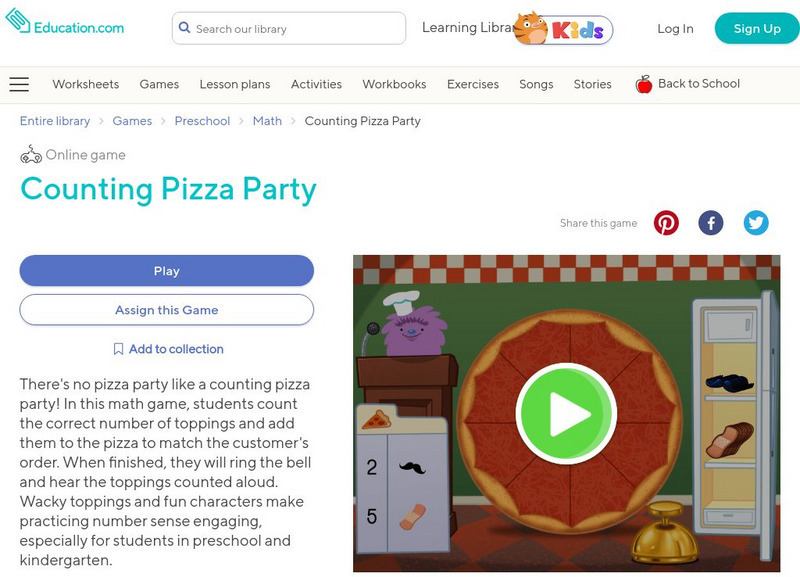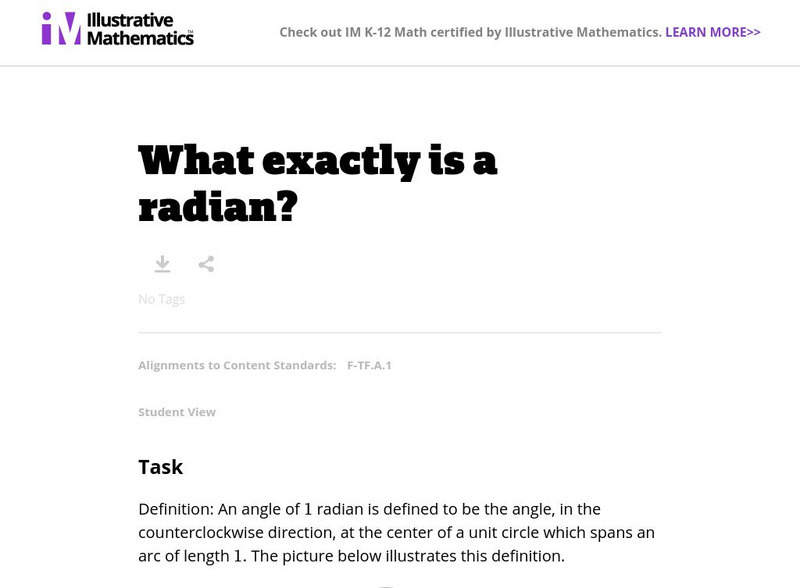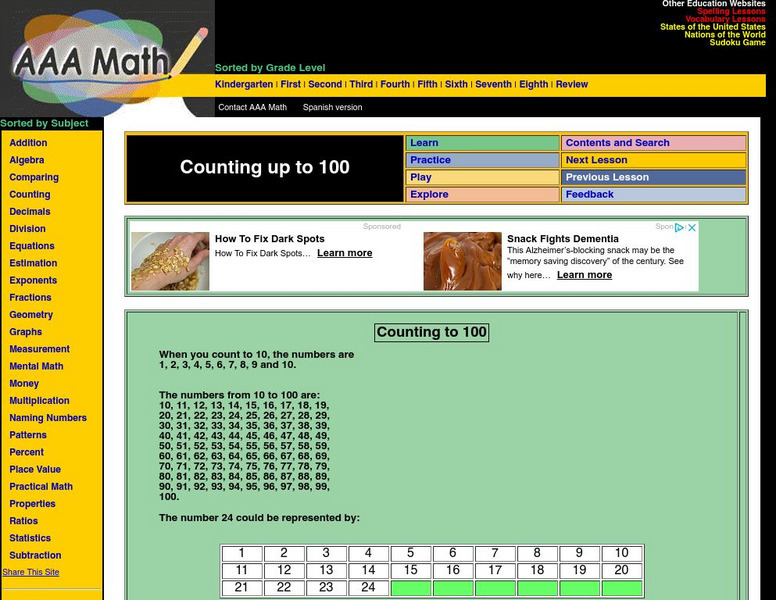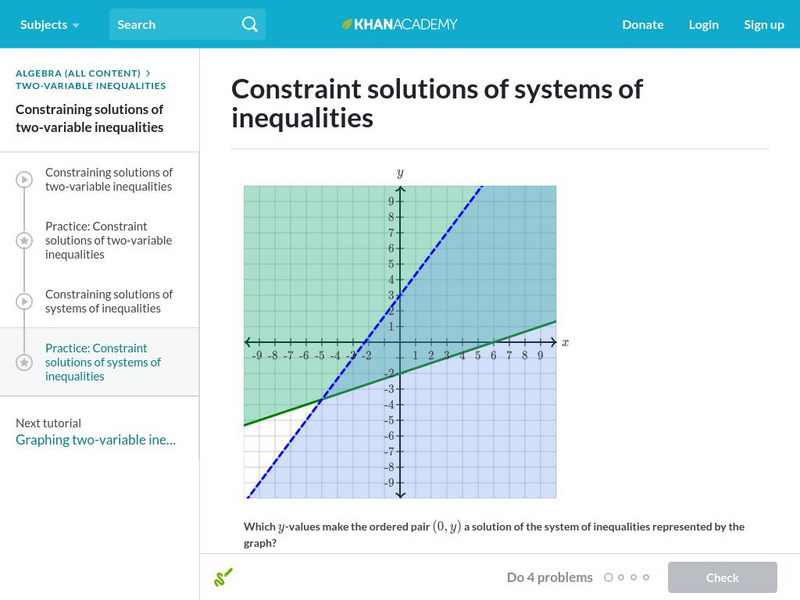E-learning for Kids
E Learning for Kids: Math: Living in the Mill: Numbers: Count to 10
On this interactive site students learn to count to the number 10, represent numbers from 0 to 10, and demonstrate one-to-one correspondence when counting.
Other
Mega Math: One to One Correspondence
This site contains a simple example of one-to-one correspondence used in the real world.
Other
Erikson Institute: Why One to One Correspondence Matters
A hallmark of accurate counting is when preschoolers begin to assign one number, and only one number, to each object as they count. We see this achievement when a child touches or tags each object in time with saying the counting words....
Education.com
Education.com: Counting Pizza Party
[Free Registration/Login Required] There's no pizza party like a counting pizza party! In this math game, students count the correct number of toppings and add them to the pizza to match the customer's order.
Louisiana Department of Education
Louisiana Doe: Louisiana Believes: Eureka Math Parent Guide: Ratios and Proportional Relationships
A guide to support parents as they work with their students in ratios and proportional relationships.
Khan Academy
Khan Academy: Corresponding Sides and Points
Practice with corresponding sides and points in scale drawings.
Illustrative Mathematics
Illustrative Mathematics: F Tf.1 What Exactly Is a Radian?
For this task, young scholars use a piece of string or another tool to measure the radius of the circle and then mark off the corresponding arc length on the unit circle as many times as they need to for 0, 1, 2, 3, 4, 5, and 6 radians....
Math Is Fun
Math Is Fun: Binary Digits
Learn about the two binary digits, 0 and 1, and how they are combined to make numbers that correspond to our standard number system. Looks also at the relationship between binary and hexadecimal digits.
AAA Math
Aaa Math: Number of Objects
An online game from AAAmath.com for students to practice counting. Students can visit sections to learn, practice, play, and explore this skill.
AAA Math
Aaa Math: Counting to 100
An interactive lesson from aaamath.com. The student can learn, practice, play a game, and explore counting to 100.
Khan Academy
Khan Academy: Algebra: Constraint Solutions of Systems of Inequalities
Find the range of values of one variable that corresponds to a given value of the other variable in a system of two-variable linear inequalities. Students receive immediate feedback and have the opportunity to try questions repeatedly,...
Khan Academy
Khan Academy: Function Inputs & Outputs: Graph
Find all the inputs that correspond to a given function output, using the function's graph. Students receive immediate feedback and have the opportunity to try questions repeatedly, watch a video or receive hints.
Khan Academy
Khan Academy: Constraint Solutions of Two Variable Inequalities
Find the range of values of one variable that corresponds to a given value of the other variable in a linear inequality. Students receive immediate feedback and have the opportunity to try questions repeatedly, watch a video, or receive...
Other
Erikson Institute: Numbers and Fun With Anno's Counting Book
There are multiple opportunities to teach number sense with the book Anno's Counting Book. This teacher explains how she used it in her preschool classroom to practice counting objects and number recognition.
Other
The Futures Channel: Proportional Reasoning
"Connecting learning to the real world" is the goal of the Futures Channel. Through the use of short videos, teachers can integrate real-world examples of how math and science are used in everyday life. Complete teaching guidelines...
PBS
Pbs: Creating Numerical Patterns With Rules: Bianca Functions in the Wild
In this Cyberchase video, Bianca and her friend go camping and soon realize that Bianca has left the food at home. They find a vending machine in the woods, but it doesn't dispense the food that corresponds with the numbers Bianca...
Illustrative Mathematics
Illustrative Mathematics: A Rei Solution Sets
For this task, students are shown the graphs of two equations, with areas bounded by their lines and intersections shaded in different colors. They are asked to write a system of equations or inequalities for each shaded area and explain...











